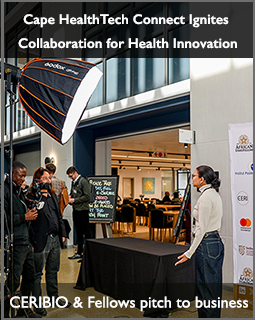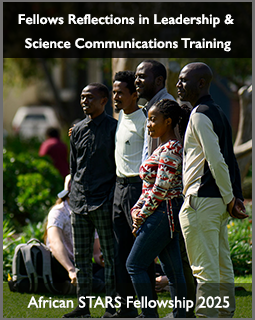University-Industry-Government Co-operation Needed for Entrepreneurial Success
By MaryAnn Francis, Durban, 11-April-18. A partnership involving academia, industry and government is needed for innovation and entrepreneurship to blossom, says Deputy Vice-Chancellor of Research at UKZN, Professor Deresh Ramjugernath at the Durban Spark Innovation Breakfast

UKZN's Professor Deresh Ramjugernath (centre) with various stakeholders at the breakfast meeting.
Speaking at the 3rd Spark Innovation Breakfast Meeting in Durban, Ramjugernath explained that universities needed to change their mind-sets in order to produce graduates fit for purpose and able to contribute to the socio-economic growth of the country.
The breakfast, a Stanford University tradition aimed at fostering innovation and entrepreneurship in the city, was hosted by the Technology Innovation Agency (TIA), funded by the KwaZulu-Natal Research Innovation and Sequencing Platform (KRISP), and held at the Nelson R Mandela School of Medicine.
Ramjugernath said technology transfer had become big business. UKZN was renowned for many 'world firsts' and for world-class science. A robust entrepreneurial ecosystem - the triple helix of government, industry and university - would especially benefit scientists and academics less motivated to innovate technologies and business models.
There are six key elements of an entrepreneurial university, according to Ramjugernath. These are good leadership and governance, capacity incentives, entrepreneurship in teaching and learning, a culture of entrepreneurship, stakeholder partnerships, and internationalisation.
In order to significantly contribute to nation-building, universities needed to focus more on innovation and entrepreneurship.
Mrs Commonwealth finalist, Marlene Govender, was also at the breakfast: 'I am excited to learn that UKZN, my alma mater, is focusing on innovation and entrepreneurship. This strategy is pivotal to solving the quadruple challenges facing Africa and South Africa - poverty, unemployment, inequality and skills development. Through bridging the gap between Higher Education Institutions, the private sector and government, we can design creative solutions to positively impact on the socio-economic growth of our continent and give back to our people dignity, health and the opportunities for growth. This is only possible through collaboration.'
News date: 2018-04-18
Links:










